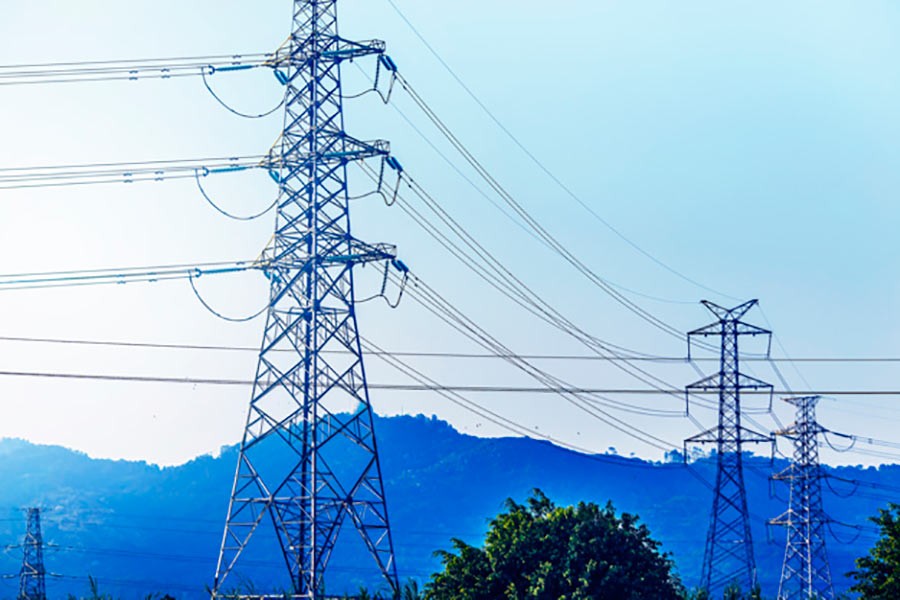
Published :
Updated :

Bangladesh power distribution companies have signed several contracts (already 35 consumers have been under the net metering systems and several others are in the process) with the consumers to procure electric energy produced by them on their rooftops using solar photovoltaic panels. As reported, these consumers have started supplying approximately 5 MW electricity to the national grid operated by the power distribution companies. The government expects that there will be further increase of power supply by the consumers to the national grid within the scope and framework of the Net Metering Guidelines 2018. Sustainable and Renewable Energy Development Authority (SREDA) targets 400 MW of electricity generation within next three years from these solar systems and for their increased uses. The Power Division of the Ministry of Power, Energy and Mineral Resources has unveiled the Net Metering Guidelines 2018 in July last year, which enables the power utility companies to buy surplus power the consumer may supply after their own consumption. The Net Metering system works based on calculating the difference between the 'export' of power generated by the consumer from their solar installations, and the 'import' of power from the power distribution companies in exchange of credits in the form of energy or money. Based on the calculations, the consumers are then compensated for the surplus power generated and supplied to the grid at a price determined by the contract. Under the system, any consumer can set up rooftop solar system covering up to 70 per cent capacity of the sanctioned load and sell the additional or unconsumed solar power after meeting his/her demand through a special meter under an exchange arrangement. At the end of the month, electricity bills will be adjusted on the basis of consumption and sales of solar power to the utilities and the consumer will get payment from the distribution company at a wholesale rate if his sale overruns the consumption.
The net metering guideline is targeted to help the industrial, commercial and household consumers to use their roof tops (or on the empty spaces of their premises) to install solar panels and generate electricity, consume them (alongside the grid supplied power) for their own demand and sell excess electricity to distribution companies (partly or fully). Net metering system will enable the consumers to record the power consumed from the power grid and supply power produced by them using solar energy. Primarily, the said guideline will help establish the mechanism for integrating the renewable energy into the national power grid.
Power Cell under the Ministry of Power, Energy and Mineral Resources officials believe that the government will be able to buy about 10-12 MW power from rooftop consumers as many large clients like industries, apartment complex, shopping malls and hotels have already set up rooftop solar power plants for their own consumption as part of the government policy. Even, individual consumers, who installed rooftop solar power system, can sell additional electricity to the government under the Net Metering System. The country has a target to generate 2,470 MW or 10 per cent of electricity from renewable energy sources by 2021 in compliance with the Sustainable Development Goals (SDGs). The present installed power generation capacity in the country has reached 20,400 MW including off grid 2,800 MW from captive power generation plants. In addition 1,160 MW power is being imported from India at the moment.
Bangladesh, so far, has been successful in securing steady growth of utilising solar energy mainly in Solar Home Systems (SHS) installation (generally stand alone solar systems). There are already 5.5 million installed SHS in the country, predominantly in the off-grid areas. The cumulative generation capacity from the installed SHSs has reached nearly 325 MW. So far, contribution of renewable energy including 230 MW installed capacity of Kaptai Hydro Electric Power Plant is 559 MW (below 3 per cent, including solar, hydro, biomass, wind etc). Hence, electricity generation has been relying mainly on fossil fuels in the country. The government's power generation strategy focuses on primary fuel diversification and securing electricity for all. In addition, the government has the commitment of attaining the Sustainable Development Goals (SDG), including increasing renewable energy use. The government is willing to encourage the consumers for self-consumption of electricity produced from renewable energy sources, and to reduce dependency on the grid power. Self consuming solar energy helps households and other consumers to avoid or at least reduce purchasing electric energy from the grid. The consumers will be benefited significantly if they can encash the supplied excess electricity generated on their rooftops or premises within the framework of net metering. Industrial entrepreneurs can additionally benefit from the opportunity as they can focus on 'green factory' to reduce carbon emission and get incentive on exports.
The consumers who will reduce their grid electricity consumption and supply excess electricity to the power grids using net metering facilities can reduce their electricity bills directly, and can help the country reduce import of primary fossil fuels. The net metering guideline is not unique in our country; rather we are late to introduce it. However, the utility companies should carefully maintain the contracts with their consumers for building confidence. Once the system starts working, net metering will hopefully receive encouraging response from the consumers, and the authorities can gradually start expanding coverage of the system.
Mushfiqur Rahman is a mining engineer and writes on energy and environment issues.


 For all latest news, follow The Financial Express Google News channel.
For all latest news, follow The Financial Express Google News channel.